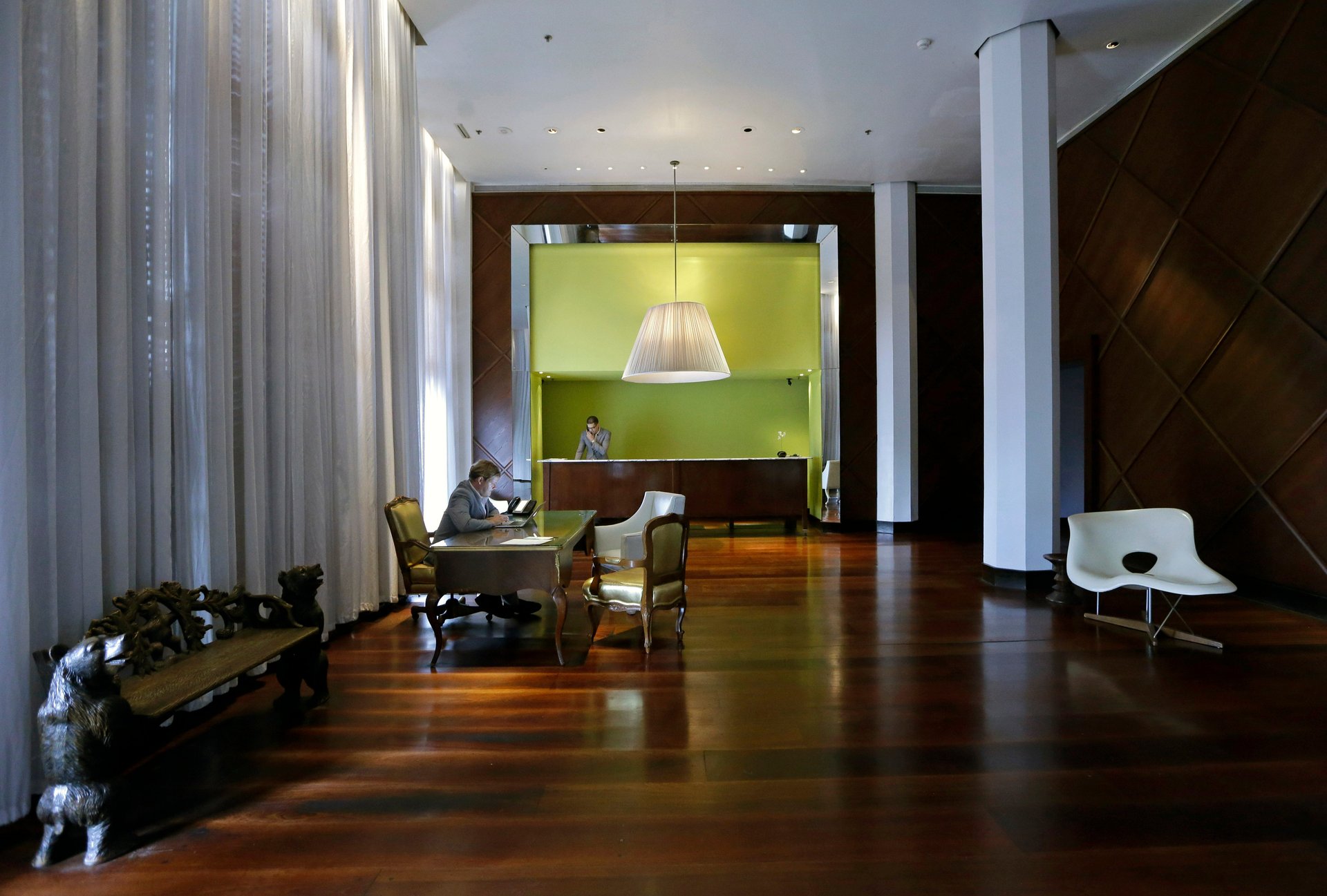Hotels are starting to realize they have one thing Airbnb doesn’t: a lobby
It may have taken them a while, but it’s fair to say that the hotel industry finally sees Airbnb as a bona fide threat. And that threat is much of the reason why hotel groups are launching new products and concepts to go after the same young, lucrative, and digitally-inclined demographic that Airbnb so effectively lures.


It may have taken them a while, but it’s fair to say that the hotel industry finally sees Airbnb as a bona fide threat. And that threat is much of the reason why hotel groups are launching new products and concepts to go after the same young, lucrative, and digitally-inclined demographic that Airbnb so effectively lures.
However, in trying to emulate the company—which is valued at more than Hilton and Hyatt combined—hotels might be missing an obvious beat. As boutique hotel pioneer Ian Shrager told Skift recently, hotels already have something that Airbnb can’t offer: communal space (known by most folks as the hotel lobby). Sure, it may be a standard, if not a bit ho-hum, concept. But the tried and true hotel lobby offers unique advantages for a variety of reasons—chief among them, as Shrager pointed out, is that Airbnb (with its inventory of private homes) “can’t do it.”
Despite this, the innovation that we’re seeing again and again today seems to be focused on everything but lobbies. Instead, hospitality companies appear obsessed with “customizable” and “connected” experiences as well as surface level features and add-ons that have, for better or worse, become synonymous with millennials. For example, Hilton just released its “Connected Room” which is anchored around modern conveniences like syncing your Netflix account with the in-room TV, using your phone to turn off the lights and adjust the temperature, and solving the great injustice of generic hotel artwork by replacing it with your camera roll.
Hilton’s Joshua Sloser, Senior Vice President of Digital, says that the ”Connected Room is rooted in the unique needs of our guests, who have voiced an increasing desire to personalize their stays.” Of course Hilton’s new product may appeal to those beyond the millennial demographic—after all, nearly every traveler is connected digitally these days. Yet this kind of innovation is indicative of the larger trend of brands rolling out “millennial-focused” hotel rooms, with the standard-issue fast wifi, minimalist furniture, and cheaper prices they supposedly desire.
While this can’t necessarily hurt, there’s no guarantee it’ll help, either. What could help, as Shrager hints at, is focusing on the specific reasons why a traveler should stay in a hotel over another disruptive accommodation option. Positioning the hotel lobby as a communal space for collaboration, spontaneity, and an overall atmosphere you can’t get at home—and re-designing them to enhance those very qualities—is a good place to start. It’s an offering that someone’s rented apartment can’t touch and provides a much needed dose of old-fashioned fun and novelty that’s worth leaving home for. This, at the end of the day, might still be a hotel’s most valuable proposition.
Hotel chains like Ace Hotel have built entire properties around this notion of curated pleasure and service mixed with function. They’ve designed many of their properties’ lobbies as quasi co-working spaces, where you’re just as likely to find a local freelancer or relaxing creative as you are an actual hotel guest. Shrager’s newest property, PUBLIC Hotel New York, opened in earlier this year on the Lower East Side and has also clearly embraced the “lobby-as-lifestyle” trend. PUBLIC ditched usual amenities like check-in desks and room service to focus on spacious public and communal spaces where guests can mix, mingle and get a solid sense of the hotel’s DNA. Again, the emphasis is as much on functionality as fun—what else to expect from the man behind not just the boutique hotel concept, but the legendary NYC nightspot Studio 54.
In blurring the line between bar, lobby, and hotel business center, spaces like Ace and PUBLIC invite guests to linger and enjoy the novelty of the hotel experience, whether they’re drinking a cocktail or working on a business proposal—or, likely, both at the same time. Another variation on this theme is the current renaissance of luxury hostels, with travelers seeing the benefit of paying for an experience that comes with a built-in space to meet like-minded people and hoteliers offering them surroundings as appealing as a hipster bar.
It took the hotel industry a while to come to grips with the threat that the sharing economy poses. They now have the opportunity to innovate around their own strengths, in addition to going after the competition.